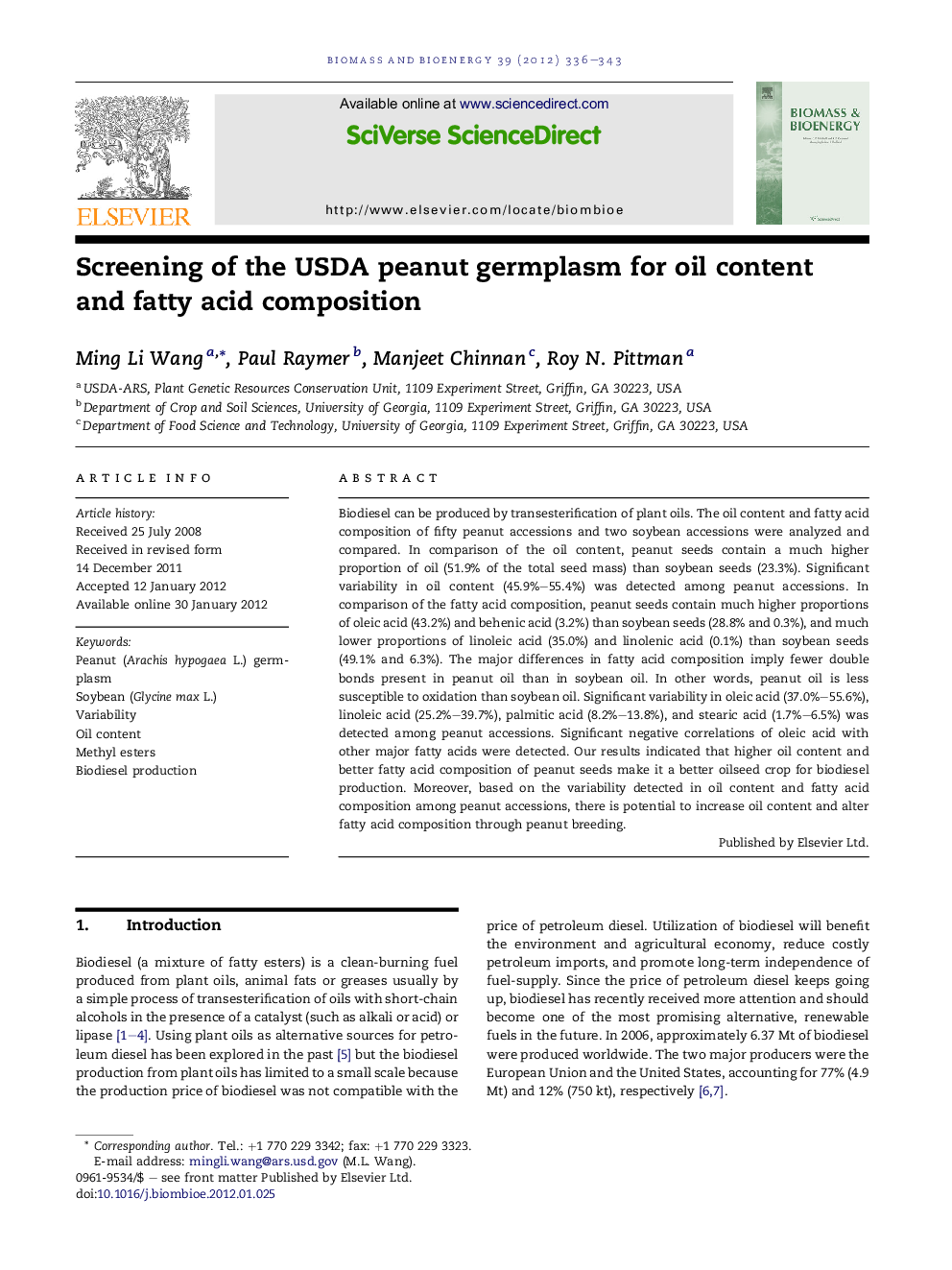| کد مقاله | کد نشریه | سال انتشار | مقاله انگلیسی | نسخه تمام متن |
|---|---|---|---|---|
| 677517 | 1459854 | 2012 | 8 صفحه PDF | دانلود رایگان |

Biodiesel can be produced by transesterification of plant oils. The oil content and fatty acid composition of fifty peanut accessions and two soybean accessions were analyzed and compared. In comparison of the oil content, peanut seeds contain a much higher proportion of oil (51.9% of the total seed mass) than soybean seeds (23.3%). Significant variability in oil content (45.9%–55.4%) was detected among peanut accessions. In comparison of the fatty acid composition, peanut seeds contain much higher proportions of oleic acid (43.2%) and behenic acid (3.2%) than soybean seeds (28.8% and 0.3%), and much lower proportions of linoleic acid (35.0%) and linolenic acid (0.1%) than soybean seeds (49.1% and 6.3%). The major differences in fatty acid composition imply fewer double bonds present in peanut oil than in soybean oil. In other words, peanut oil is less susceptible to oxidation than soybean oil. Significant variability in oleic acid (37.0%–55.6%), linoleic acid (25.2%–39.7%), palmitic acid (8.2%–13.8%), and stearic acid (1.7%–6.5%) was detected among peanut accessions. Significant negative correlations of oleic acid with other major fatty acids were detected. Our results indicated that higher oil content and better fatty acid composition of peanut seeds make it a better oilseed crop for biodiesel production. Moreover, based on the variability detected in oil content and fatty acid composition among peanut accessions, there is potential to increase oil content and alter fatty acid composition through peanut breeding.
► Variability in oil content and fatty acid composition were detected within USDA peanut germplasm.
► Peanut oil contains fewer double bonds (less susceptible to oxidation) than soybean oil.
► Higher oil content & fewer double bonds make peanut oil a better feedstock for biodiesel production.
Journal: Biomass and Bioenergy - Volume 39, April 2012, Pages 336–343